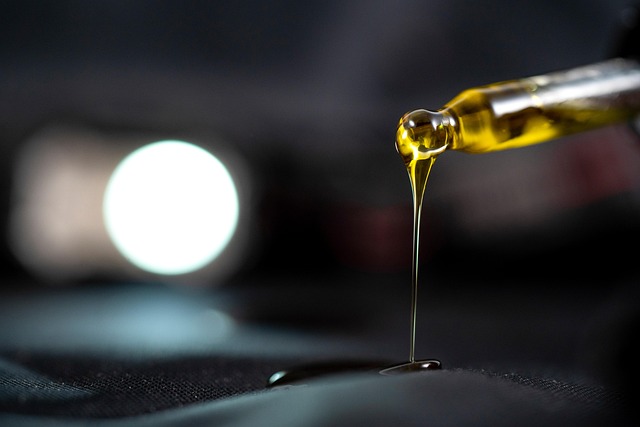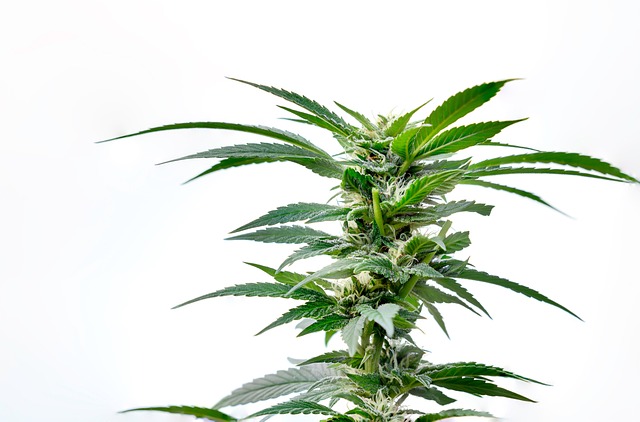Experience Relaxation Without Compromise: Why Delta 8 Edibles Outperform THC Rosin

Tired of the jitters and paranoia linked to traditional THC products? Delta 8 edibles are here to re…….
In the ever-evolving world of cannabis, a new trend has emerged, captivating both industry insiders and enthusiasts: THC rosin. This concentrated form of cannabis extract has sparked curiosity and debate, leaving many wondering about its true nature and relationship with Tetrahydrocannabinol (THC), the iconic psychoactive compound known for its mind-altering effects. In this comprehensive article, we embark on a journey to demystify THC rosin, exploring its composition, global impact, economic significance, technological advancements, regulatory landscape, challenges, and the potential it holds for the future. By delving into these aspects, readers will gain an in-depth understanding of THC rosin’s role and its unique position within the cannabis industry.
THC rosin, often referred to as “Rosin Hash” or simply “Rosin,” is a highly potent and pure form of cannabis concentrate. It is derived from the plant’s resin glands, hence the name ‘rosin.’ This method of extraction involves gently heating and pressing the resin, resulting in a viscous, amber-colored substance that retains the full spectrum of cannabinoids and terpenes naturally present in the plant.
The key difference between THC rosin and other cannabis concentrates lies in its production process. Unlike butane or CO2 extraction methods used for producing other concentrates like wax or shatter, rosin extraction is a solventless process, making it a preferred choice for those seeking a more natural and cleaner product. This method preserves the plant’s natural terpene profile, contributing to its distinct aroma and flavor.
The concept of extracting concentrated cannabis compounds dates back centuries, with early methods involving manual separation of resin from the plant. However, the modern era of THC rosin can be traced to the advancements in extraction technology and the growing demand for more efficient and pure forms of cannabis products. As research into the therapeutic potential of cannabinoids gained momentum, so did the need for improved extraction techniques.
In recent years, THC rosin has gained popularity due to its accessibility, versatility, and perceived quality. It has become a favorite among consumers seeking high-potency cannabis products without the use of potentially harmful solvents. This shift towards natural extraction methods reflects a broader trend in the industry toward consumer demand for safer, more transparent products.
THC rosin’s impact is not confined to any single region; it has captured the attention of cannabis enthusiasts and businesses worldwide. The global cannabis market, already a multi-billion-dollar industry, is witnessing a surge in demand for concentrates, with THC rosin at the forefront.
The economic implications of THC rosin are significant, shaping the cannabis industry’s landscape. This concentrate has become a lucrative segment within the broader market, driving investment and innovation.
Technological innovations have played a pivotal role in the rise of THC rosin, improving extraction efficiency and product quality. These advancements contribute to the overall success and appeal of this concentrated cannabis form.
The regulatory environment surrounding THC rosin is complex and varies across jurisdictions, reflecting the evolving nature of cannabis laws worldwide. Understanding these policies is crucial for businesses and consumers alike.
Despite its growing popularity, THC rosin faces several challenges and criticisms that require careful consideration and strategic solutions. Addressing these issues will be crucial for the long-term success and sustainability of this industry segment.
To illustrate the practical impact of THC rosin, let’s explore two successful case studies from different regions, showcasing its versatility and potential.
In Germany, a leading medical cannabis clinic has integrated THC rosin into its treatment regimen for patients with chronic pain and anxiety disorders. The clinic sources high-quality rosin from local farmers, ensuring a consistent supply of pure, potent extracts. Through carefully tailored doses, patients experience significant relief without the potential side effects associated with oral medications. This case study highlights the therapeutic potential of THC rosin in a clinical setting.
A popular cannabis brand in California has developed a line of THC rosin products, targeting health-conscious consumers. Their marketing strategy emphasizes the natural extraction process and robust terpene profiles, appealing to those seeking premium, high-potency concentrates. The brand’s success lies in its ability to educate consumers about rosin’s benefits and establish it as a preferred choice for discerning cannabis enthusiasts.
As we peer into the future, several trends and growth areas emerge for THC rosin, signaling its continued significance and potential.
In conclusion, THC rosin has emerged as a significant player in the cannabis industry, captivating consumers and businesses alike with its potency, natural extraction process, and diverse applications. From medical treatments to recreational use, this concentrated extract offers unique benefits and experiences.
As we’ve explored throughout this article, THC rosin’s global impact, economic considerations, technological advancements, regulatory landscape, challenges, and successful case studies paint a comprehensive picture of its significance. By addressing the issues it faces and embracing emerging trends, the future looks promising for this captivating cannabis concentrate.
Q: Is THC rosin the same as marijuana?
A: No, they are not the same. THC (Tetrahydrocannabinol) is a cannabinoid found in the cannabis plant, and rosin is a method of extracting and concentrating these cannabinoids, including THC. Marijuana refers to the dried flowers and leaves of the cannabis plant, which contain varying levels of cannabinoids and terpenes.
Q: Is THC rosin safe to use?
A: When consumed responsibly and in accordance with local laws, THC rosin can be safe for use. However, like any cannabis product, it may have potential side effects, especially when consumed in high doses. It’s crucial to start with small amounts and understand your tolerance.
Q: How does THC rosin differ from other concentrates?
A: THC rosin distinguishes itself through its solventless extraction process, preserving the full spectrum of cannabinoids and terpenes naturally present in the plant. This method results in a viscous, amber-colored substance with a distinct aroma and taste. Other concentrates, like wax or shatter, often involve solvent extraction methods that can alter the terpene profile.
Q: Can THC rosin be legal?
A: The legality of THC rosin varies worldwide. In many countries and states, it is legal for both medical and recreational use if produced or sourced from licensed operators and falls within specified cannabinoid limits. However, local laws and regulations can change frequently, so it’s essential to stay informed about your region’s guidelines.

Tired of the jitters and paranoia linked to traditional THC products? Delta 8 edibles are here to re…….

Boost your wellness journey without compromising mental clarity with our premium THC-free hemp seeds…….

Looking to boost your health on a budget without compromising purity? Our Pure, No THC Rosin Hemp Pr…….

Tired of the uncertainties and potential risks linked to THC? Our CBD Gummi Bears are here to transf…….

Looking for a natural, affordable lighting solution that offers more than just glow? Our Hemp Lamps,…….